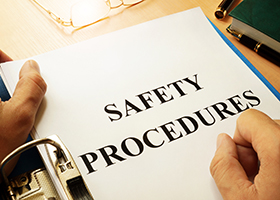
HVAC Techs Double as Environmental Stewards
 When considering a career in HVAC, you are also helping the planet by becoming an environmental steward.
When considering a career in HVAC, you are also helping the planet by becoming an environmental steward.
The first way that an HVAC technician can help the environment is by managing energy consumption in commercial HVAC and industrial refrigeration units. Guiding commercial HVAC customers to newer, more energy-efficient air conditioner models or retrofitting older systems will not only help the Earth, it will help save something else green—their customer’s money. Newer, more efficient units consume much less energy than previous generations of air conditioners, which will cut down significantly on energy consumption.
An efficient furnace or boiler will also help keep customer’s costs down in the winter by reducing dependency on oil, gas or electric.
Cutting down on energy consumption will cut down on the consumption of electricity and fossil fuels, reducing the cost of operation for the customer. Good product knowledge gained during training will make it easy for union-trained technicians to make recommendations that are beneficial for the customer, the bottom line and the environment.
Another way HVAC impacts the environment is with chemical management.
Air conditioning units built prior to 2010 use chemicals that are harmful to the environment. These hydro-chlorofluorocarbons (HCFC), called R-22, are damaging to the ozone layer. The chemicals take two years in the atmosphere to break down after the HCFC’s are exposed to the sun’s ultraviolet rays. This breakdown process is what damages the ozone layer, which is what protects us from the harmful ultraviolet rays of sun. By 2030, R-22 will be completely phased out of use.
A new chemical, Puron, known as R-410A, used in modern air conditioners, is safer for the environment.
The Environmental Protection Agency (EPA) has specific requirements for the handling of R-22 for commercial HVAC and industrial refrigeration purposes. The federal agency also has in-depth regulations for technicians to follow and an exam for refrigerant management.
Knowledge for all these requirements is taught to apprentices as a major portion of their second-year training at the Edward R. Gehm Training Center. The training covers:
- History of refrigerants
- Types of refrigerants and their chemical structures
- Environmental issues caused by refrigerants
- Human hazards
- EPA regulations and the Clean Air Act
- Refrigerant safety
- How to recover, recycle and reclaim refrigerant
- How to detect and repair refrigerant leaks
Bet you didn’t think that HVAC technicians could have such an impact on the Earth. All day, every day, they are on the front lines of defense for the atmosphere and everyone’s health.
Learn more about joining the union Local nearest you and all the other great benefits of union membership, such as wages above the private sector and incredible benefits packages.
- April 17th, 2018
- Blog
- No Comments



